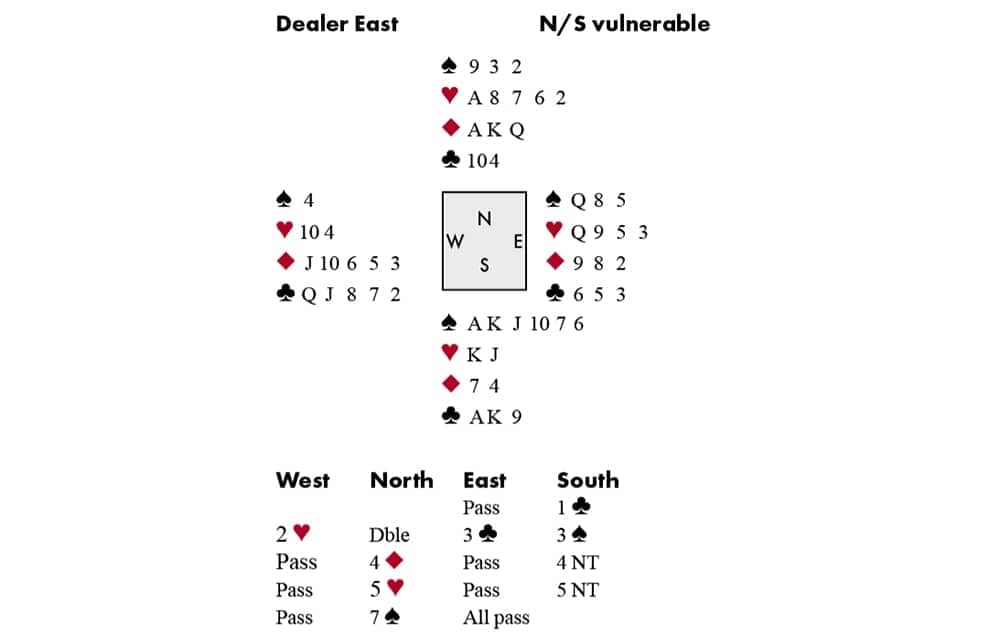In the modern game, being green versus red (non-vul v. vul) is a licence to bid on tram tickets: passing is for wimps. The aim is to be as obstructive as possible – anything to stop the opponents having a clear run at game. Hence the huge array of pre–emptive and two-suited overcalls that have been devised to make life difficult.
But although aggressive bidding can work brilliantly, it can also be dangerous – especially against experts, who are primed to take full advantage of any information you give them. Take the following deal from the Yeh Bros Cup in China some years ago. Peter Bertheau and Fredrik Nyström of Sweden bid a grand slam they wouldn’t have considered without some help from Japan’s Kazuo Furuta and Kadashi Teramoto (see diagram).
So what did it all mean? South (Bertheau) opened 1♣, strong and artificial. West’s 2♥ showed either the minors or spades. North (Nyström) doubled, and East bid 3♣, asking his partner to pass or correct if he held the minors, but also showing a desire to compete if his suit was spades. Bertheau bid 3♠; Nyström cue-bid 4◆, and Bertheau bid Roman Keycard. 5♥ showed two aces and denied the ♠Q – but so what? Once West had shown the minors and, even more revealingly, East had shown tolerance for spades, the ♠Q was almost guaranteed to be well placed. So Bertheau made a grand-slam try, which Nyström accepted.
He won the club lead, cashed the ♠A, crossed to a diamond and took the spade finesse for a 13 IMP gain against the small slam bid in the other room. What do they say about careless talk costing lives?






Comments